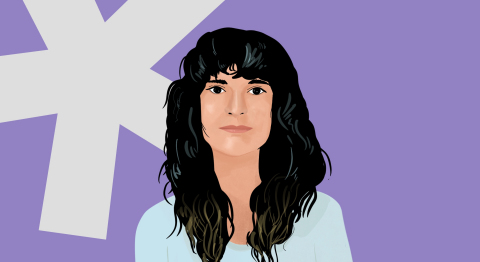Ibrahim Coulibaly over Nyeleni
Ibrahim Coulibaly uit Mali was een van de organisatoren van het eerste Nyeleni Forum 2007, deze week ook deelnemer aan het Europese Nyeleni Forum voor Voedselsoevereiniteit in Oostenrijk.
Hij is verbonden aan enkele boerensyndicaten waaronder Roppa , Ropac en Cnop en ondermeer actief binnen La Via Campesina.
We stellen enkele vragen bij een goed glas kraantjeswater.
Welke resultaten kan je zien na Nyeleni Afrika vier jaar geleden?
Ons forum was een uniek moment doordat mensen uit 80 landen samenkwamen om eigen inhoud aan voedselsoevereiniteit te geven en tot samenwerking op te roepen.
Dit Europese forum is daarvan een gevolg, misschien volgen nog andere continenten?
Sommige landen hebben we kunnen bewegen om voedselsoevereiniteit op te nemen in hun grondwet, met name Mali en Nepal. In Zwitserland en Bolivia is het debat daarover gaande.
Ten gronde zijn we erin geslaagd om een sterke en eigen inhoud te geven aan voedselsoevereiniteit waardoor het groeide tot een richtinggevend concept voor alle landen en regios.
Is er in Afrika een publiek debat over de herkomst van voeding en de invloed van consumementengedrag op landbouwers?
In de dorpen maar ook kleinere steden is bijna alle voeding lokaal, vlees sowieso omdat we geen koeling hebben en we vlees dus eten op de dag van bereiding.
In de steden is er wel een probleem met de import van rijst en bloem voor brood. Vooral omtrent de rijst is er wel degelijk een debat. Mensen hebben een voorkeur voor de lokale en Afrikaanse rijst want die is smakelijker en beter, maar ook duurder. Dat debat wordt breed gevoerd onder boeren maar ook in de pers en daarbuiten.
Leidt dat debat ook tot politieke veranderingen?
Hier en daar hoor je wel eens verklaringen of politieke besluiten die dit soort import in vraag stelt. Wat ons betreft moet er vooral worden aangedrongen bij Europa en de andere exporterende regio’s om niet voor Afrika te produceren. Onze boeren zijn best in staat om voor alle Afrikanen te produceren maar ze moeten de ruimte krijgen op de markt daarvoor en niet met goedkope import gedwarsboomd worden.
De politieke verklaringen en besluiten hierover zijn welkom maar in de praktijk veranderen ze niet veel omdat de grote spelers op de markt andere belangen hebben en verandering ten aanzien van hen niet afgedwongen worden.
In meerderheid blijven onze politici trouwens regels verzinnen die onzinnig zijn en ons als landbouwers eerder dwarsbomen.
Jij bent zelf ook boer, hoe staat het met je bedrijf?
Gaat wel, mijn geluk is dat ik zo ongeveer alles produceer. We hebben graan voor familiaal gebruik maar telen ook groenten en fruit die we verkopen. We hebben ook nog koeien, schapen en geiten, kippen … Zo een gemengd bedrijf is eerder de regel bij ons, de specialisatie zoals in Europa kennen we nauwelijks. Zulke bedrijven zouden niet kunnen werken in Afrika omdat we niet de infrastructuur hebben om grote massa’s voedsel te transporteren en bewaren …
Daardoor exporteren we bijvoorbeeld nauwelijks naar Europa,. onze katoenexport trouwens gaat vandaag vooral naar China, de textielindustrie heeft Europa grotendeels verlaten en al zeker West-Europa.
Tot slot, welke Afrikaanse toets zou je toevoegen aan dit Europees forum?
Hmm, eigenlijk is de sfeer op dit forum best vergelijkbaar met de Afrikaanse editie: de mensen eten samen in een heel vriendelijk sfeertje en er worden continu contacten gelegd tussen de eigenlijk bijeenkomsten door, zelfs het weer (het zijn warme dagen hier) heeft hier iets Afrikaans. Het ziet er goed uit hoor, jullie komen er wel uit.
(door Wim Merckx)
Onderstaand: tekst door Coulibaly verschenen in The Guardian op 2 juni 2011
The global food crisis: The right to decide what we eat
‘Food sovereignty’, the right of small farmers to chose what to eat and what to grow, is vital to feeding the world
“Food sovereignty” – people’s right to decide what they eat and what they produce – is today one of the hottest topics debated around food policies.
It arose in the mid-1990s, when the debates around food policies were dominated by the globalisation of agribusiness and by food aid. At that time, peasants and small farmers who were – and still are – the world’s main food producers saw that the policies implemented were serving large conglomerates and not the people – transforming small-scale agriculture into industrial plantations; dumping food surpluses from rich countries in poor ones; increasing the use of chemical pesticides and fertilisers; concentrating food production in the hands of multinationals.
While the World Trade Organisation was being invented in 1995, some small-farmer organisations from across the world came together to defend sustainable family farming. It was simply about producing healthy food for local markets while creating jobs and protecting the land and its diversity. The idea to call this “food sovereignty” emanated from these discussions, and was presented in 1996 at the Food and Agriculture Organisation’s world food summit in Rome.
The genie was out of the box. The idea of food sovereignty was starting to get out of the fields and into decision-making. And it moved quickly. Jean Ziegler, the then UN special rapporteur on the right to food, brought the farmers’ word to the UN. Some experts began debating it at the FAO; some governments, such as Ecuador and Bolivia, even included it in their constitutions. Thousands of farmers continued to practise it in their plot of land, and thousands of consumers continued to buy locally.
In 2007, Via Campesina felt the need to define better what peasants and small farmers really wanted. We organised a large forum in a village in Mali, called the Nyeleni Forum, assembling more than 700 people from various social movements: women’s groups, trade unions, pastoralists, environmental organisations, urban poor, consumers, farmers and fisher folk.
Together, we defined food sovereignty as “the right of peoples to healthy and culturally appropriate food produced through sustainable methods, and their right to define their own food and agriculture systems. It puts the aspirations, needs and livelihoods of those who produce, distribute and consume food at the heart of the food systems and policies rather than the demands of markets and corporations.”
Time has passed since the first farmers’ groups expressed that new idea. It has now become blatantly obvious that the free market and agribusinesses won’t feed the world. In 2008, the number of hungry people grew from 800 million to 1 billion, and since the onset of the latest food crisis over the past year, 44 million more people have fallen below the poverty line.
We believe that when they reflect the realities and the needs of hundreds of millions of people, some words can change the world. It is now time for food sovereignty to be implemented from the village communities to international policies. To start with, it is critical that peasants and rural communities are supported in reclaiming territories, keeping control over their land, and having access to water as a common good and a human right. Farmers, especially women, should have the right to use, save and exchange seeds, and local markets should be promoted.
• Ibrahim Coulibaly is a member of the international co-ordinating committee of Via Campesina and a member of the Coordination Nationale des Organisations Paysannes du Mali
Welke resultaten kan je zien na Nyeleni Afrika vier jaar geleden?
Ons forum was een uniek moment doordat mensen uit 80 landen samenkwamen om eigen inhoud aan voedselsoevereiniteit te geven en tot samenwerking op te roepen.
Dit Europese forum is daarvan een gevolg, misschien volgen nog andere continenten?
Sommige landen hebben we kunnen bewegen om voedselsoevereiniteit op te nemen in hun grondwet, met name Mali en Nepal. In Zwitserland en Bolivia is het debat daarover gaande.
Ten gronde zijn we erin geslaagd om een sterke en eigen inhoud te geven aan voedselsoevereiniteit waardoor het groeide tot een richtinggevend concept voor alle landen en regios.
Is er in Afrika een publiek debat over de herkomst van voeding en de invloed van consumementengedrag op landbouwers?
In de dorpen maar ook kleinere steden is bijna alle voeding lokaal, vlees sowieso omdat we geen koeling hebben en we vlees dus eten op de dag van bereiding.
In de steden is er wel een probleem met de import van rijst en bloem voor brood. Vooral omtrent de rijst is er wel degelijk een debat. Mensen hebben een voorkeur voor de lokale en Afrikaanse rijst want die is smakelijker en beter, maar ook duurder. Dat debat wordt breed gevoerd onder boeren maar ook in de pers en daarbuiten.
Leidt dat debat ook tot politieke veranderingen?
Hier en daar hoor je wel eens verklaringen of politieke besluiten die dit soort import in vraag stelt. Wat ons betreft moet er vooral worden aangedrongen bij Europa en de andere exporterende regio’s om niet voor Afrika te produceren. Onze boeren zijn best in staat om voor alle Afrikanen te produceren maar ze moeten de ruimte krijgen op de markt daarvoor en niet met goedkope import gedwarsboomd worden.
De politieke verklaringen en besluiten hierover zijn welkom maar in de praktijk veranderen ze niet veel omdat de grote spelers op de markt andere belangen hebben en verandering ten aanzien van hen niet afgedwongen worden.
In meerderheid blijven onze politici trouwens regels verzinnen die onzinnig zijn en ons als landbouwers eerder dwarsbomen.
Jij bent zelf ook boer, hoe staat het met je bedrijf?
Gaat wel, mijn geluk is dat ik zo ongeveer alles produceer. We hebben graan voor familiaal gebruik maar telen ook groenten en fruit die we verkopen. We hebben ook nog koeien, schapen en geiten, kippen … Zo een gemixt bedrijf is eerder de regel bij ons, de specialisatie zoals in Europa kennen we nauwelijks. Zulke bedrijven zouden niet kunnen werken in Afrika omdat we niet de infrastructuur hebben om grote massa’s voedsel te transporteren en bewaren …
Daardoor exporteren we bijvoorbeeld nauwelijks naar Europa,. onze katoenexport trouwens gaat vandaag vooral naar China, de textielindustrie heeft Europa grotendeels verlaten en al zeker West-Europa.
Tot slot, welke Afrikaanse toets zou je toevoegen aan dit Europees forum?
Hmm, eigenlijk is de sfeer op dit forum best vergelijkbaar met de Afrikaanse editie: de mensen eten samen in een heel vriendelijk sfeertje en er worden continu contacten gelegd tussen de eigenlijk bijeenkomsten door, zelfs het weer (het zijn warme dagen hier) heeft hier iets Afrikaans. Het ziet er goed uit hoor, jullie komen er wel uit.
(door Wim Merckx)
Onderstaand: tekst door Coulibaly verschenen in The Guardian op 2 juni 2011
The global food crisis: The right to decide what we eat
‘Food sovereignty’, the right of small farmers to chose what to eat and what to grow, is vital to feeding the world
“Food sovereignty” – people’s right to decide what they eat and what they produce – is today one of the hottest topics debated around food policies.
It arose in the mid-1990s, when the debates around food policies were dominated by the globalisation of agribusiness and by food aid. At that time, peasants and small farmers who were – and still are – the world’s main food producers saw that the policies implemented were serving large conglomerates and not the people – transforming small-scale agriculture into industrial plantations; dumping food surpluses from rich countries in poor ones; increasing the use of chemical pesticides and fertilisers; concentrating food production in the hands of multinationals.
While the World Trade Organisation was being invented in 1995, some small-farmer organisations from across the world came together to defend sustainable family farming. It was simply about producing healthy food for local markets while creating jobs and protecting the land and its diversity. The idea to call this “food sovereignty” emanated from these discussions, and was presented in 1996 at the Food and Agriculture Organisation’s world food summit in Rome.
The genie was out of the box. The idea of food sovereignty was starting to get out of the fields and into decision-making. And it moved quickly. Jean Ziegler, the then UN special rapporteur on the right to food, brought the farmers’ word to the UN. Some experts began debating it at the FAO; some governments, such as Ecuador and Bolivia, even included it in their constitutions. Thousands of farmers continued to practise it in their plot of land, and thousands of consumers continued to buy locally.
In 2007, Via Campesina felt the need to define better what peasants and small farmers really wanted. We organised a large forum in a village in Mali, called the Nyeleni Forum, assembling more than 700 people from various social movements: women’s groups, trade unions, pastoralists, environmental organisations, urban poor, consumers, farmers and fisher folk.
Together, we defined food sovereignty as “the right of peoples to healthy and culturally appropriate food produced through sustainable methods, and their right to define their own food and agriculture systems. It puts the aspirations, needs and livelihoods of those who produce, distribute and consume food at the heart of the food systems and policies rather than the demands of markets and corporations.”
Time has passed since the first farmers’ groups expressed that new idea. It has now become blatantly obvious that the free market and agribusinesses won’t feed the world. In 2008, the number of hungry people grew from 800 million to 1 billion, and since the onset of the latest food crisis over the past year, 44 million more people have fallen below the poverty line.
We believe that when they reflect the realities and the needs of hundreds of millions of people, some words can change the world. It is now time for food sovereignty to be implemented from the village communities to international policies. To start with, it is critical that peasants and rural communities are supported in reclaiming territories, keeping control over their land, and having access to water as a common good and a human right. Farmers, especially women, should have the right to use, save and exchange seeds, and local markets should be promoted.
• Ibrahim Coulibaly is a member of the international co-ordinating committee of Via Campesina and a member of the Coordination Nationale des Organisations Paysannes du Mali
Maak MO* mee mogelijk.
Word proMO* net als 2793 andere lezers en maak MO* mee mogelijk. Zo blijven al onze verhalen gratis online beschikbaar voor iédereen.
Meer verhalen
-
Nieuws
-
Nieuws
-
Nieuws
-
Column
-
Analyse
-
Analyse









 Oxfam België
Oxfam België Handicap International
Handicap International